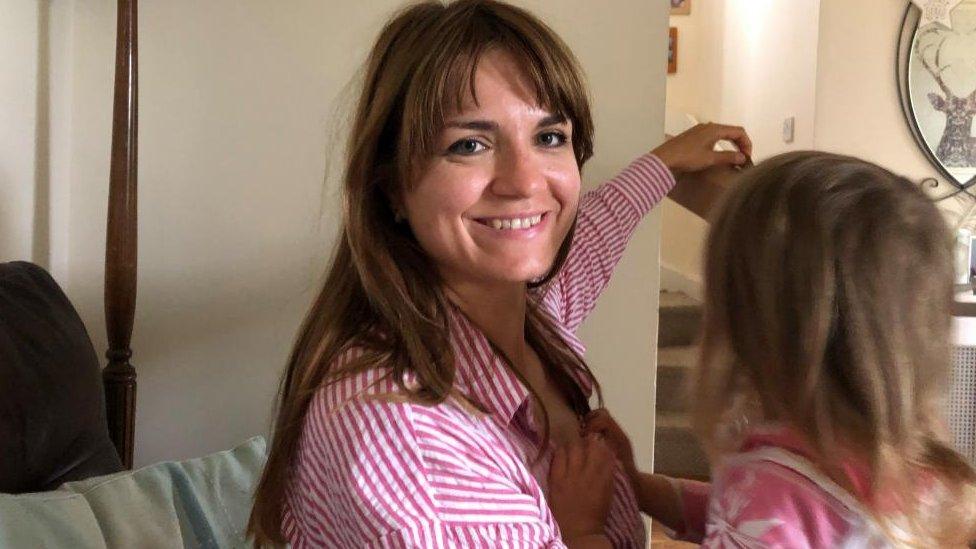Ukraine refugee in Colchester says visa rule allows her time to retrain
- Published
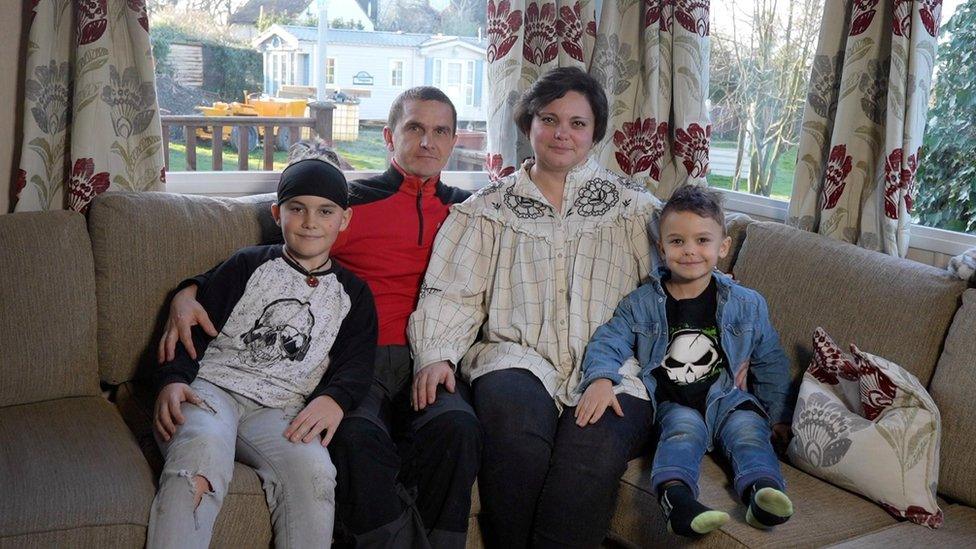
The Yevstihnieieva family lost their home during the war
A Ukrainian mother, with an aggressive form of breast cancer, fled to England with her family to finish treatment when her homeland was invaded. Two years on, she is training to be a maths teacher and her children have settled at school. She believes the government's decision to extend visas until 2026 gives her time to rebuild her life and give something back to the country that offered her sanctuary.
Hanna Yevstihnieieva, 37, an English teacher in her home town of Kherson, was diagnosed with stage three breast cancer before the war.
When Russian troops invaded her home town, she and her family had a frantic five-month search for doses of chemotherapy at various hospitals so she could continue treatment.
"I would have just died without any," said Hanna, who lost most of her hair during the treatment.
"The doctor who saved the last dose for me, she said, 'we don't have any more, you need to go somewhere else'."
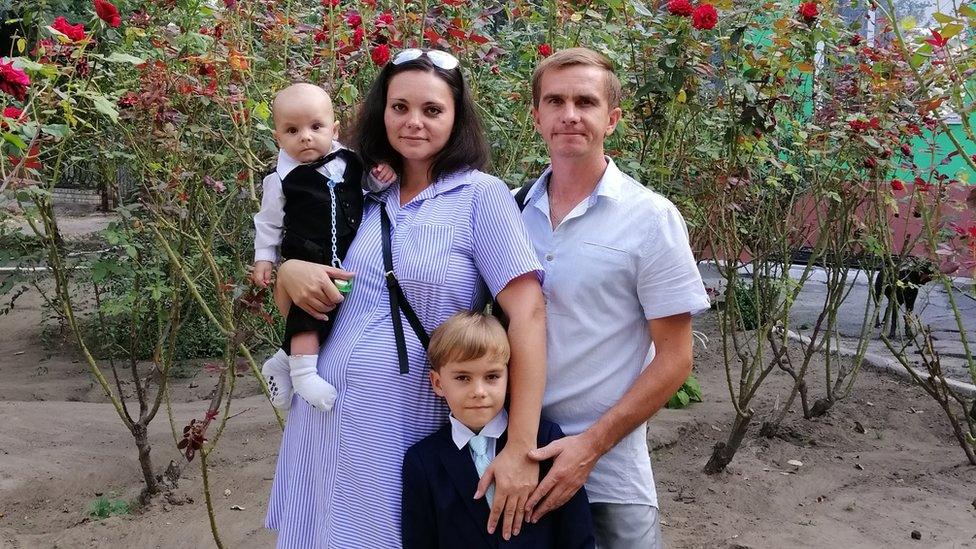
One of the few surviving pictures of the family in Ukraine
Then help came. Hanna, her husband Dmytro and their two children were sponsored by Julie Wright from Colchester. She offered them a place to live in a static home and the family joined the 252,200 other refugees in the UK, external.
But while Hanna was completing her cancer treatment at an English hospital, the family learnt their home in Ukraine was under water.
Russian forces bombed the dam in Kherson and the area flooded. Hanna felt her old life could never be remade.
"You want to cry," she said.
"I've lost friends and some of my memories. I don't have my marriage pictures, I don't have pictures of my eldest son when he was small. These are really important things, but you realise that your family is the most important thing in your world, in your life."
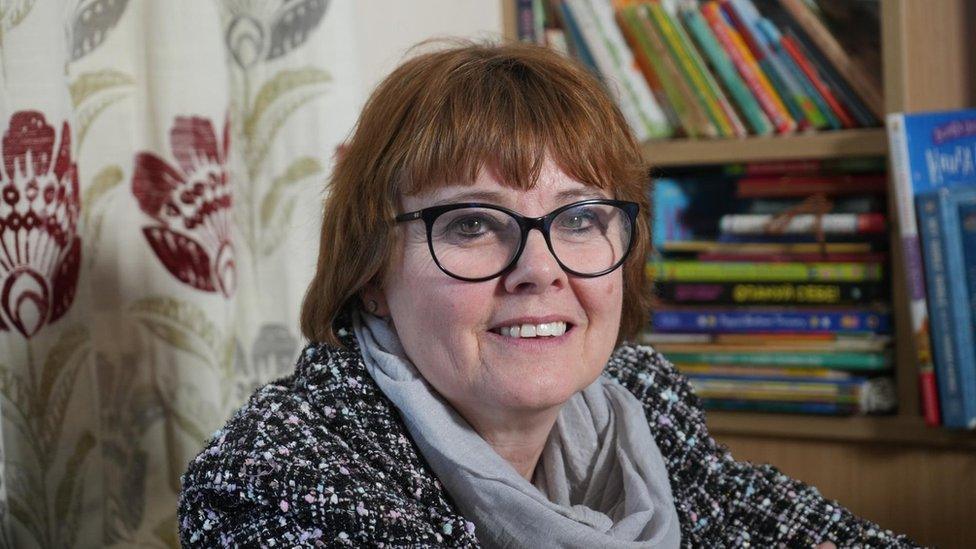
Julie Wright from Colchester met the family on a Facebook group and decided to help
Hanna is grateful for the support she has received and is waiting to see if her treatment has been successful. She is embarking on a maths degree and volunteers at her sons' school.
"It's such a pleasure to work with the small children," she said.
"They teach me English and I teach them maths, they smile to me and my mood goes up to the sky."
Hanna hopes the government's decision to extend the visa scheme for Ukrainian refugees until at least September 2026 will give her more time to complete her degree and apply for a job in a school. She says it gives her and her husband more certainty.
"When we heard about the news on the radio and we looked at each other and started smiling... We were laughing and joking.
"Now I [can] have a goal again, I now have an aim in my life... It gives us a good chance to stay in this country and be useful... and have a life again."
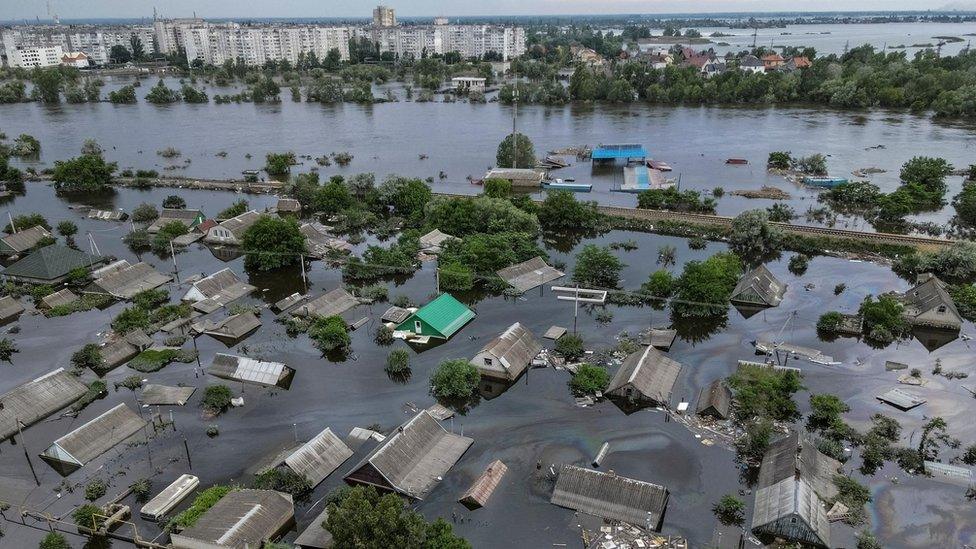
The Kherson area where Hanna's family lived, after the Nova Kakhovka dam breached, amid Russia's attack on Ukraine
Migration minister Tom Pursglove said the decision to extend visas by 18 months, would provide "reassurance for Ukrainians in the UK on their future".
But a parliamentary briefing paper, external explained how the government firmly believed that "Ukraine would be safe again" and that the country would need the return of its citizens to "help recover and rebuild their economy".
Hanna and Dmytro's four year old son Daniil can't remember the war. He was only two when it started. He can recall small things about his old house, but plays confidently with his friends on the carpet of the rural reception class.
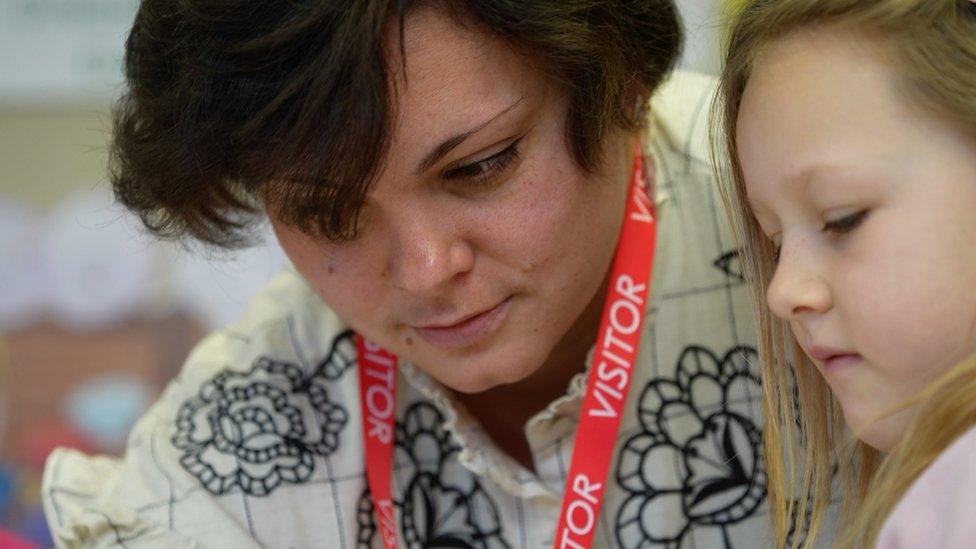
Hanna went through checks so she could get experience volunteering as a teaching assistant.
Hanna and her husband Dmytro are conscious that they may have to return to Ukraine one day, so their 10-year-old son Nazar gets up at 6.30am each morning to learn two hours of Ukrainian before school. He remembers a lot.
"It is my dream that I want to play with my old friends, but they're not in Ukraine now, they're gone all over the world," Nazar said.
He is a year older than some of his classmates, because children in Ukraine start school a year later than English pupils. But his sponsor, Julie said each day he is "becoming more English" and he plays football for a local club.
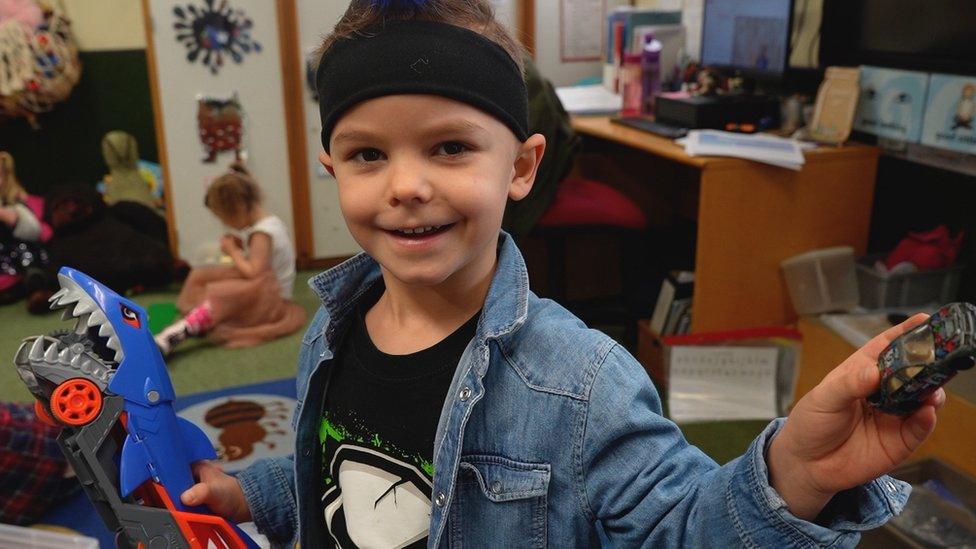
Daniil only remembers things about Ukraine like his old furniture
When he first arrived, Nazar said he did not know what to say to his classmates.
"It was scary for me, it's all different in England, the children from our class just wanted to play with me, and we're now friends. This school is so good and I want to stay here forever."
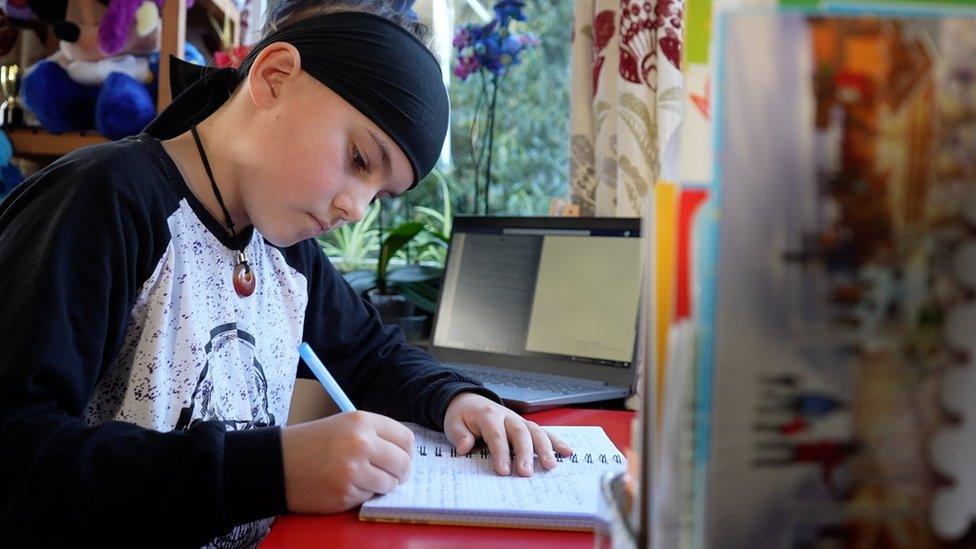
Nazar does two hours of Ukrainian lessons before he starts school in Colchester
Half an hour away, Nazar's 37-year-old father, Dmytro, has a full time job in the fruit orchard at Boxted Farms. He did a similar job in Ukraine.
The director Robert England has four Ukrainian workers on extended visas.
"Dmytro's filled a full time position, he's doing it really well and fits in really well with the team. So my wish, is that if it's their wish at the end of all this, that they will be allowed to stay."
Dmytro is trying not to think too far ahead.
"Of course we understand, if we are needed for this country we can stay," he said.
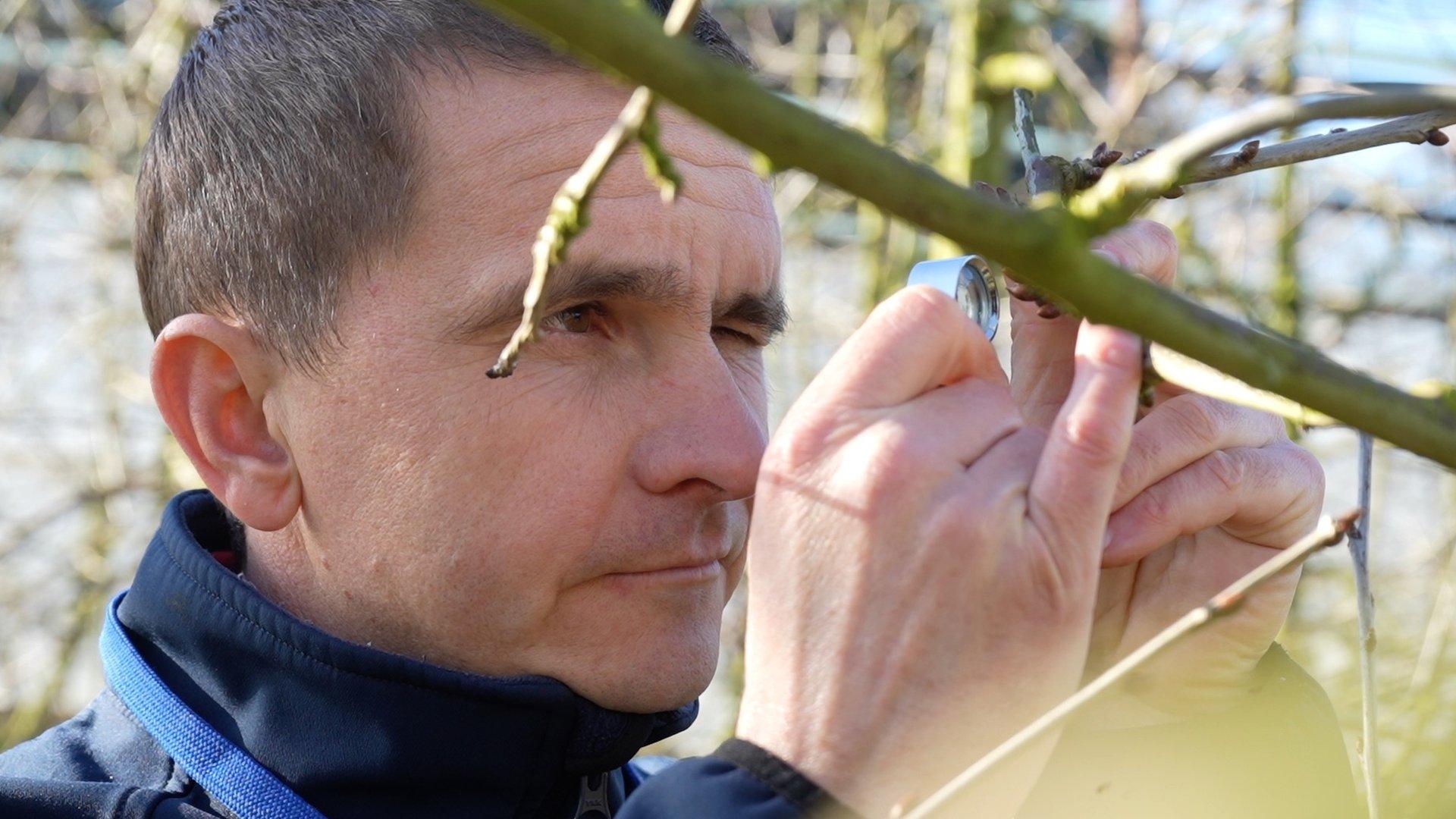
Dmytro has a full time job managing the irrigation systems at Boxted Farms in Suffolk
"If we are not needed we will not stay. We are just living, just working, doing what we can do. If we have a little bit of money and a little opportunity then for these few days we try and travel a bit with our children.
"Our previous life showed us you need to savour every moment."
Sponsor Julie said she had had a personal email from the government, thanking her for taking refugees for longer than expected.
"A thank you is more important than anything... I think Britain should be proud of what it's doing."
By 2026, Hanna's children will have been in England for four years and Julie thinks they could find it difficult to return to Ukraine: "They can't send them back now, it's too long in their lives," she said.
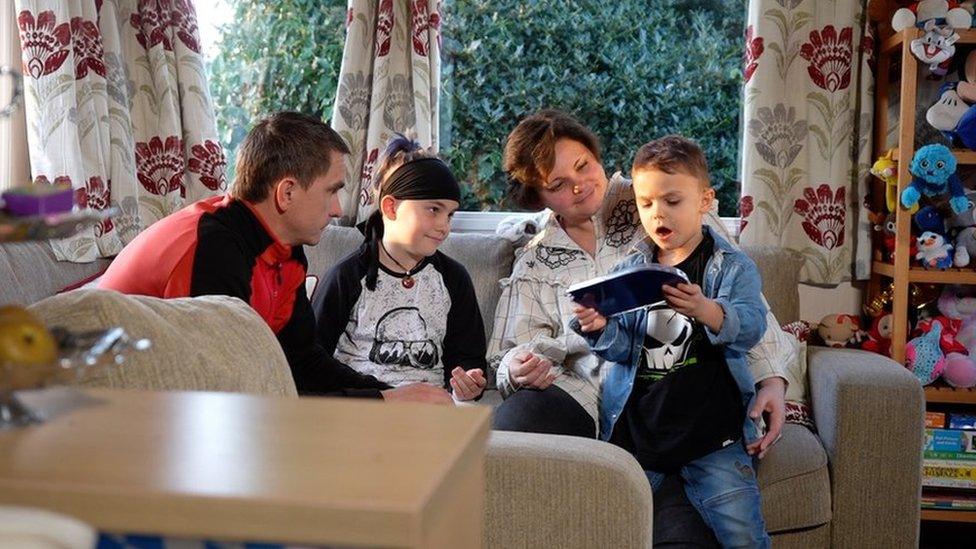
The family's visa runs out in July 2025
After school, Hanna makes her son Nazar a warm soup, with chicken on the bone. Cuddly toys are stacked on a shelf. As Nazar sits, clinking the spoon against his bowl and his younger brother tests himself on an English learning computer, Hanna considers their future.
"I want to go back to my country, but I want my children to be safe," she said.
"In my native town, they can't be safe, it is occupied for almost two years. There are a lot of bombed territories, a lot of mines, a lot of death... They can get hurt and if that were to happen to them, I would never forgive myself."

Follow East of England news on Facebook, external, Instagram, external and X, external. Got a story? Email eastofenglandnews@bbc.co.uk, external or WhatsApp us on 0800 169 1830
Related topics
- Published18 February 2024
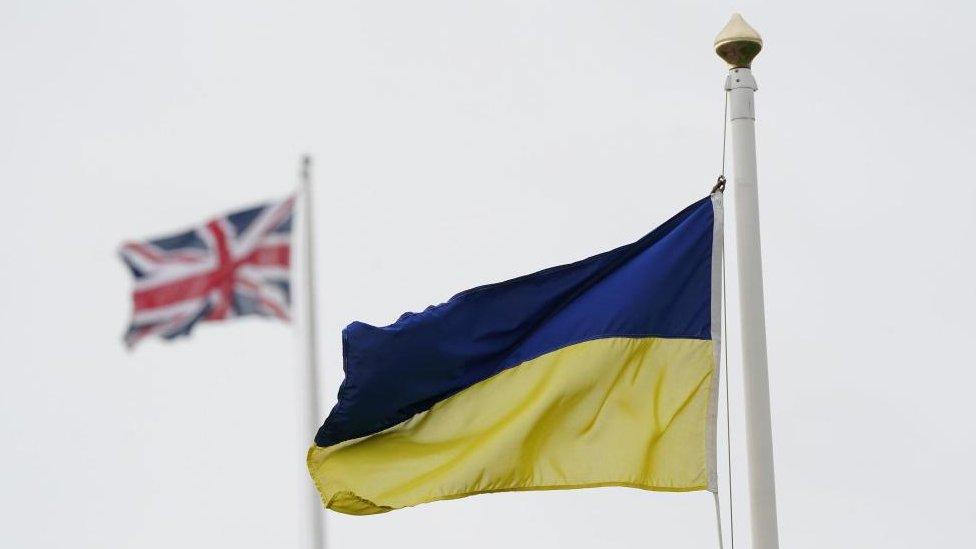
- Published19 January 2024
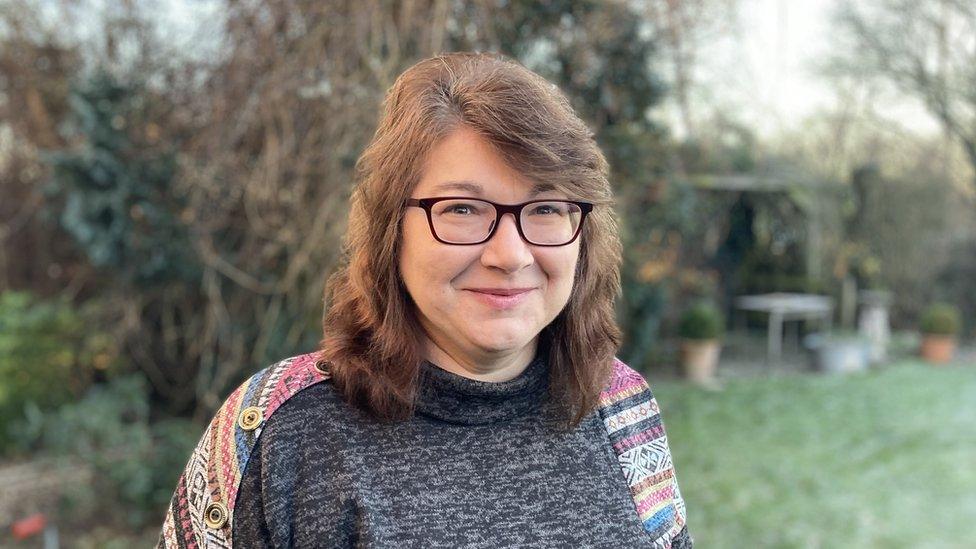
- Published16 December 2023
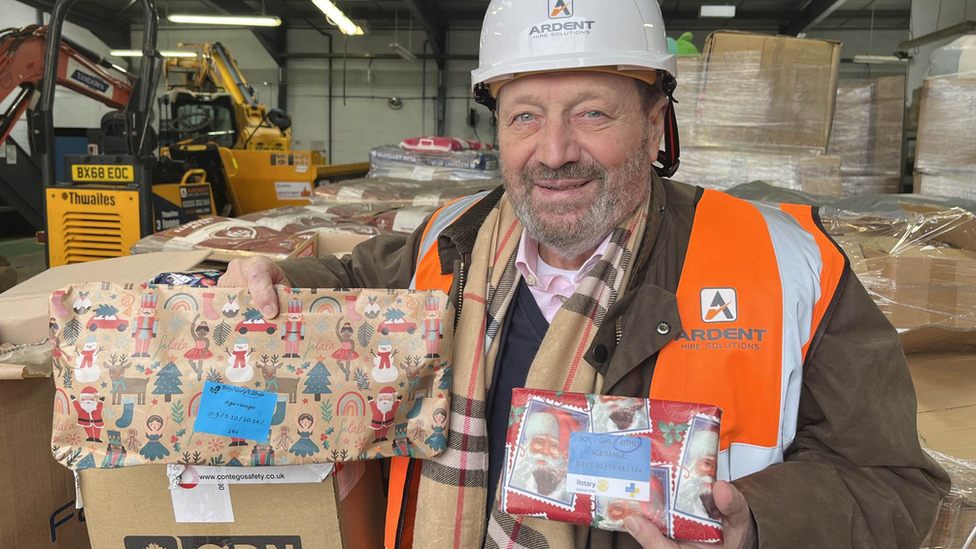
- Published17 October 2023
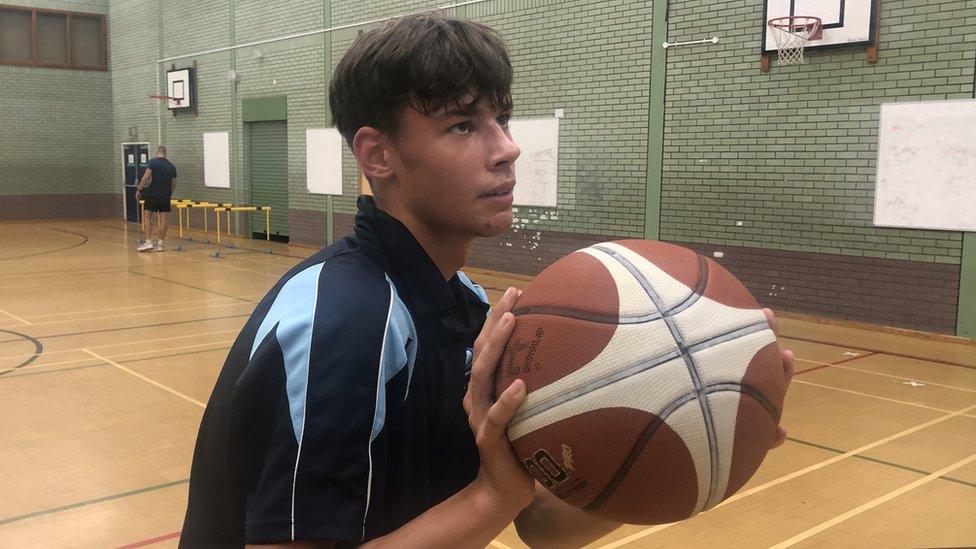
- Published7 August 2023
